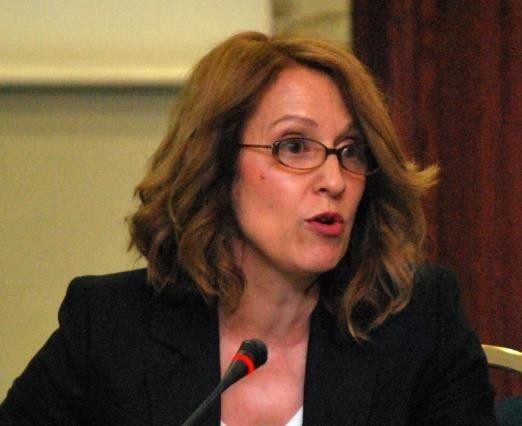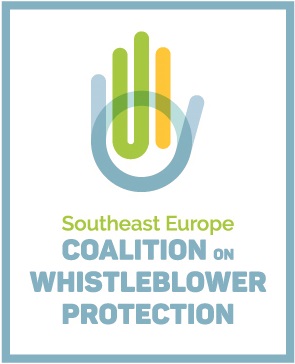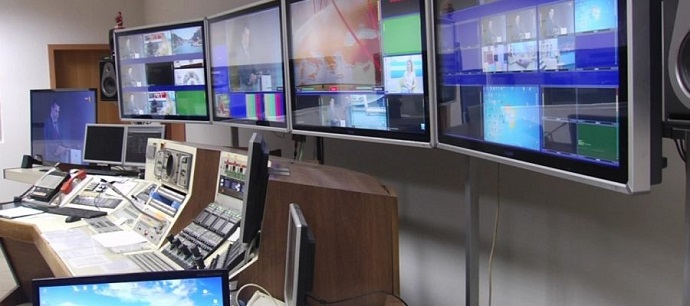Author: Mirjana Vasileva
Twelve printed editions this year got lucky for covering state-run printing costs from last year. That year, the number of printed media received government subsidies was down by one, with a total of 11 print publications receiving state aid. However, that amount was about 700,000 euros. Although the government, along with representatives of some of the media community, justified the distributions as being maximally transparent and with the support of the Association of Journalists of Macedonia, the State Commission for the Prevention of Corruption (SCPC) concludes that the criteria on the basis of which such assistance is granted are insufficiently precise and allow for inappropriate use of the allocated funds. The SCPC, as well as the community journalism, also point out that budget financing of a paid political campaign program is a potential risk of corruption and the creation of a clientelistic relationship.
According to the information obtained through the “Open Finances” tool, the Government of VMRO- DPMNE had spent as much as 38 million euros for the period 2008-2015 to advertise government policies, which 24 million were directly invested in the media. Since 2017, when the SDSM coalition came to power, the practice of government’s advertising has ceased, but the rule has been introduced to subsidize print media in order to help with printing and distribution costs. The government has earmarked about 1.5m euros for print media subsidies over the past two years, while the State Election Commission (SEC) has spent around 4m euros only for the presidential election in 2019. While, through Parliament, about 1m euros in 2018 for the name-change referendum.
Most experts agree that these advertisements and subsidies can endanger the freedom of the media. And while the state is on the verge of new elections, this sentiment is also held by journalists, who find that corrupt practices were presented during the previous government also, and during the time of this government and despite the abolition of government advertising practices in the country in the media.
INDEPENDENCE OF PRINTED MEDIA – WITH GOVERNMENT SUBSIDIES?
Executive Director of the Association of Journalists of Macedonia (AJM), Dragan Sekulovski, says that two years ago as an organization they offered their proposals to the Government in order to make their contribution to change things. He says AJM and colleagues in the print media reviewed the findings of Priebe’s report that generally print media were in economic decline and under economic pressure at that time.
An example of this, according to Sekulovski, this is the closure of the MPM company, a point that Priebe’s report treats as a sign that this type of media is not viable without significant government support. Sekulovski says this was also the occasion for a research on subsidies, in order to prepare recommendations that are translated into the Public Policy Document to support print media in the media space.
AJM supports state aid to the print media, but with a model that will offset the costs of printing services and the distribution of all print media that contribute the most to their total costs.
“The percentage of reimbursement is different in different
countries, but given the characteristics and realities on the ground, AJM
thinks that percentage in Macedonia should be around 50 percent. The system of
subsidizing printing and distribution costs should cover all print media that
have public interest content, indiscriminately and under clear criteria”, says
Sekulovski.
The government’s list of subsidies this year included 12 print media, which received government support for printing and distribution in 2019. At the Government’s call, 16 requested applications for assistance were received, of which 12 were approved, allocating 712,000 euros.
The highest amount for 2019 was received by the newspaper “Free Press” in the amount of 236,015 euros, second was “Vecher” with 137,176 euros, while “Nova Makedonija” received 110,401 euros. The list of print media that received subsidies included Albanian-language newspapers “Koha” with 80,864 euros and “Lajm” with 15,641 euros, “Focus” weekly with 75,037 euros and “Capital” with 34,081 euros, followed by the monthly Economics. and business “with 10,755 euros,” Face to face “with 3,752 euros and” Shenja “with 3,446 euros. Subsidies are also awarded to local weekly newspapers “Bitola Vesnik” with 7.980 euros and “Zenith” with 4,825 euros.
ELECTIONS – A BIG CHALLENGE FOR THE MEDIA SPHERE
Upcoming elections in the country will be another major challenge for the media, especially when it comes to whether the media will play its essential role in providing objective, transparent and accountable information to the public. Although the most significant law regulating the media sphere was enacted two years ago – on December 28, 2018, the Assembly voted 79 to approve the Law on Audio and Audiovisual Media Services, which supported both the government and the opposition – with amendments to the law offered solutions on how to provide a transparent, independent, efficient and accountable regulatory body in the field of audio and audiovisual media services. The law has been amended these days, but generally with the changes of two years ago media workers have been allowed by law to take over the work of the media in their own hands, and politics to take it away.

However, things are not going in the right way. Media law professor, Snezana Trpevska, expressed dissatisfaction with what was happening in the Parliament in the past, primarily about the lack of candidates for the new composition of the Councils for the Macedonian Radio Television and the Agency for Audio and Audiovisual Media Services.
“The public broadcaster does not serve on the citizens because it is not transformed and I think it overlaps with some of its political games and interests, which is reflected in the interests of the citizens,” Trpevska says.
She recalled the not-so-distant period, when she and her colleagues from the media community and foreign experts in the so-called “Przhinski Period” made their contribution to media reforms, which
were then transposed into legal solutions in 2017, with the aim of to establish a positive climate in the media space. But this tenth round of elections, too, seems to have to take place without what was to be done, and these were the announcements of the appointment of the new composition of the MRT and AVMS Councils.
This investigative story was produced with the financial support of the European Union. Its contents are the sole responsibility of the author and do not necessarily reflect the views of the European Union.
To be Continued…





